Get around the Lion City the Singaporean way with these 11 Singlish terms!
Here’s something Wikipedia doesn’t make obvious — “Singlish” is the lingua franca of Singapore. Essentially colloquial Singaporean English, this unique and ultra-complex language is as colourful and flavourful as the young nation herself, spoken by Singaporeans of all ethnicities here.
While often seen as broken English being spoken in a singsong tune, Singlish has become a cultural marker, something that most Singaporeans (and even foreign travellers!) identify with. But that doesn’t mean we speak bad English, okay — we can code-switch between Singlish and standard English pretty effectively for the right audience, hor?

We Singaporeans love our lah, leh, and lor as much as the Brits love their tea, milk, and sugar, but knowing only these three sounds won’t bring you far. Let’s just say, you’ll need actual vocabulary to speak a language.
As a native speaker, I dare say that Singlish is one of the most difficult languages to learn as a second language. So, here’s Singlish 101 — an introductory lesson with 11 essential Singlish words you should learn to have an easier time in Singapore.
Read also: The Ultimate Singapore Travel Guide — Insider Tips & Everything You Need To Know (Lah!)
1) Can
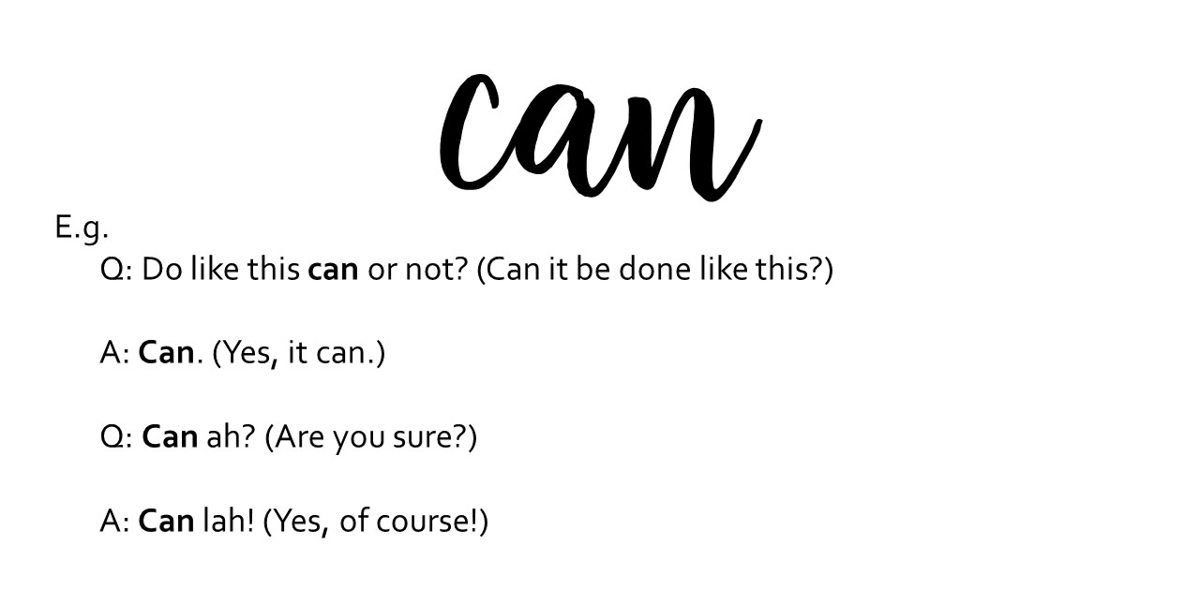
Let’s start the lesson on a positive note — the first Singlish word we’re learning is “can”. Similar to the original English term, “can” literally means “can”, or “be able to”. The Singaporean usage of “can”, however, is an amazing one. It’s a positive affirmation that’s confident, effective, and extremely efficient. Can you hear me? Can. Can it be done? Can. Can or not? Can.
[Editor’s Note: And as my platoon sergeant in the army once told me, that’s why it’s called a garbage can. Not a garbage cannot.]
2) One
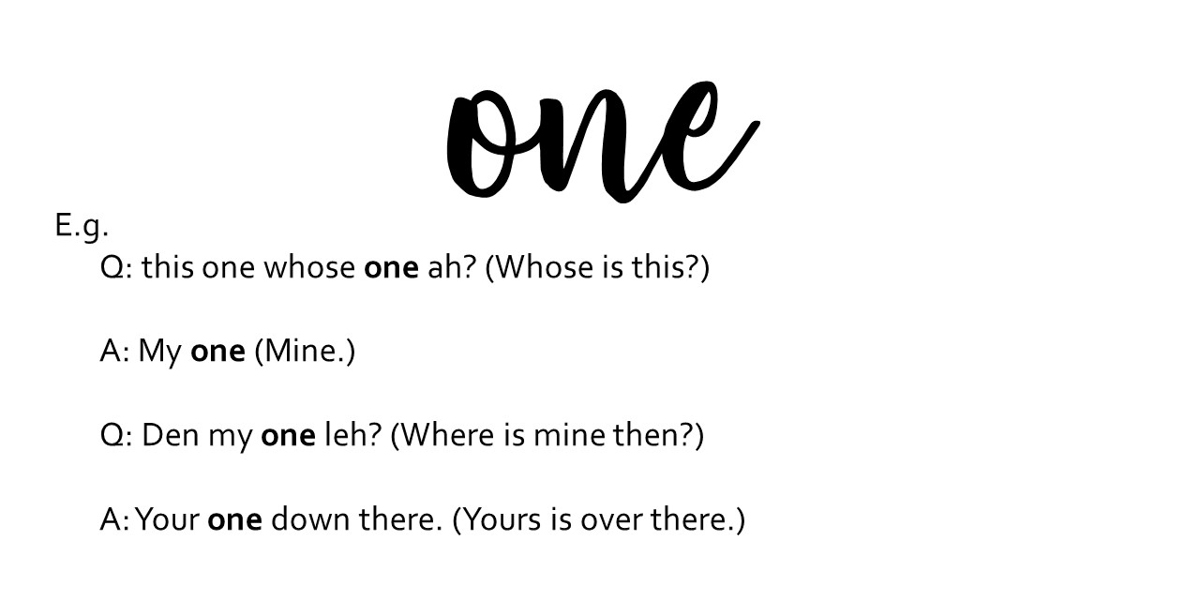
Other than using this word as a number, Singaporeans also use it as a possessive marker. One typical example which you’ll hear many Singaporeans say is: “my one”, instead of “mine”. It kind of works as an intensifier as “my one” carries more assertion than “mine”, which is single-syllabled and dull. Whose opinion? My one.
3) Den
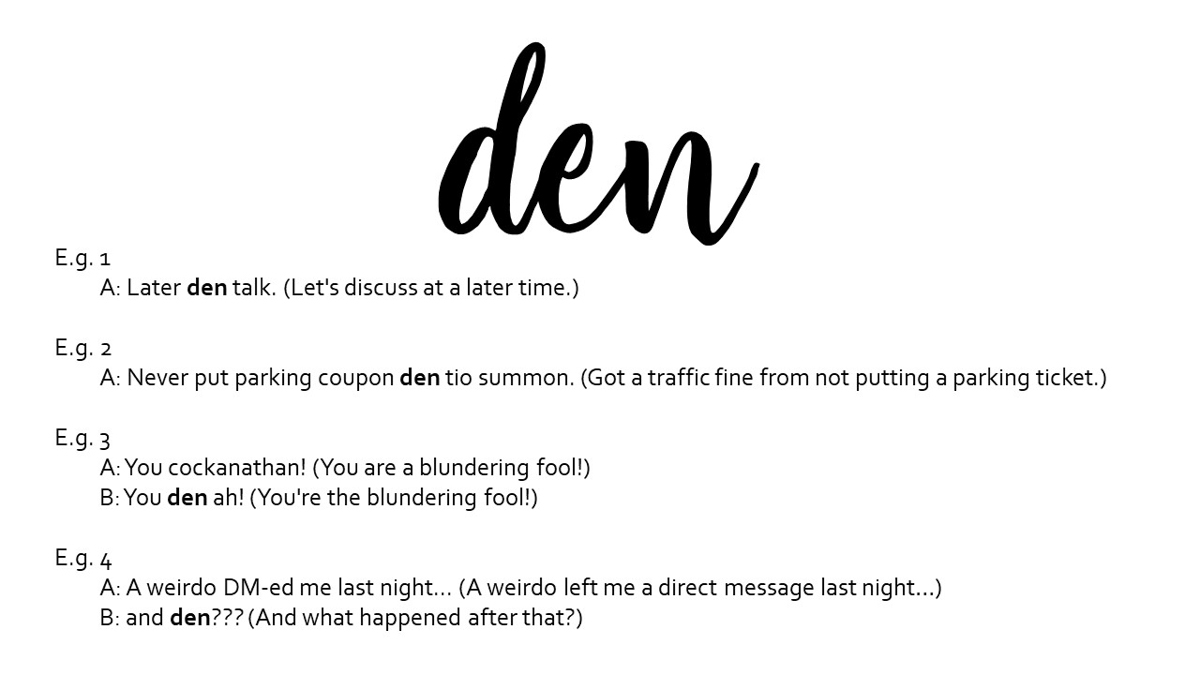
Also spelt as “then” but is pronounced with a “d” sound rather than a “th” sound, which most Singaporeans cannot even. “Den” carries a similar meaning to the English word “then” but it also conveys multiple senses such as “so”, “therefore”, “so what?”, “duh”, “which is why”, to return an insult, etc.
4) Auntie (ah-n-TEE); Uncle (AR-ng-ker)
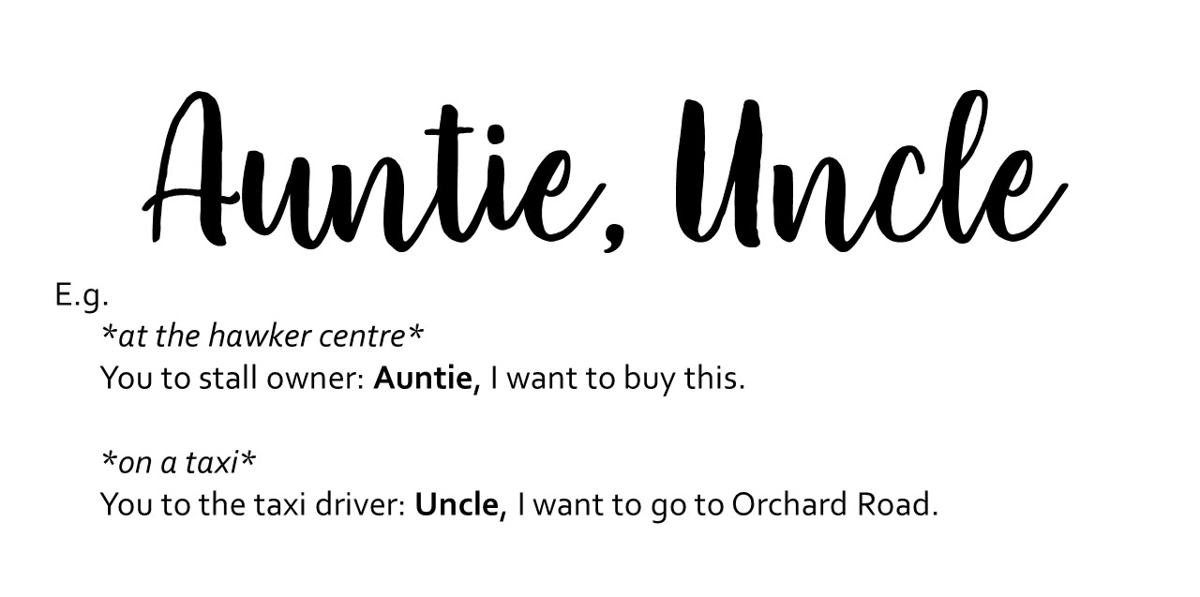
These are terms of endearment, even to strangers ‘cos we’re one big family here in Singapore. Unlike the original English terms that only refer to siblings of your parents, these terms are used to call out to any person older than you in Singapore — a neighbour, a service staff, taxi driver, bus driver, food stall owners, etc.
5) Chope (CHOU-p)
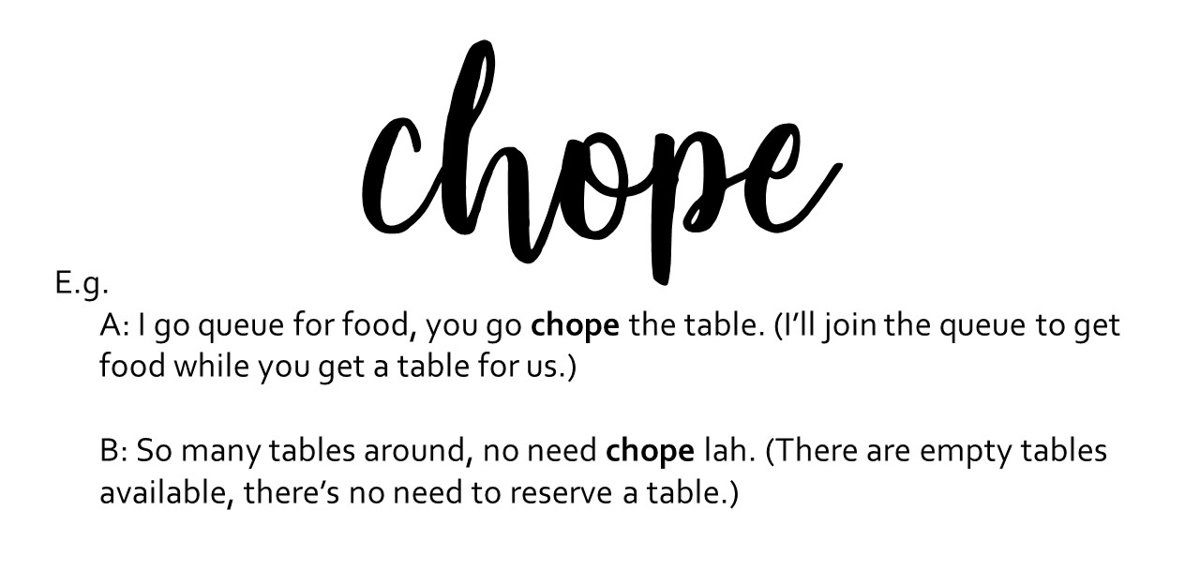
To “chope” is to reserve something, to claim ownership. Most Singaporeans use this Singlish term to “reserve” tables at free-seating hawker centres or food courts.
6) Kiasu (KEE-ah-soo)
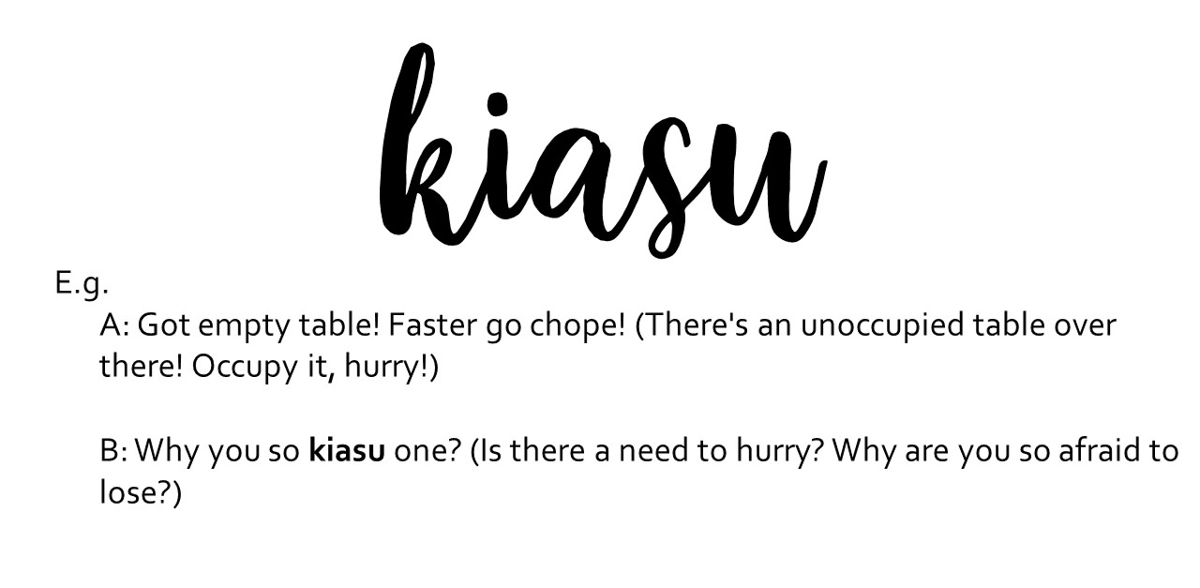
Before FOMO, there was FOLO — fear of losing out — or what Singaporeans say as “kiasu” endearingly. This Singlish term originates from the Hokkien term to literally mean being “afraid to lose”. “Kiasu” is used to describe the competitiveness of Singaporeans, whether or not things are at stake.
7) Shiok (SHE-yok)
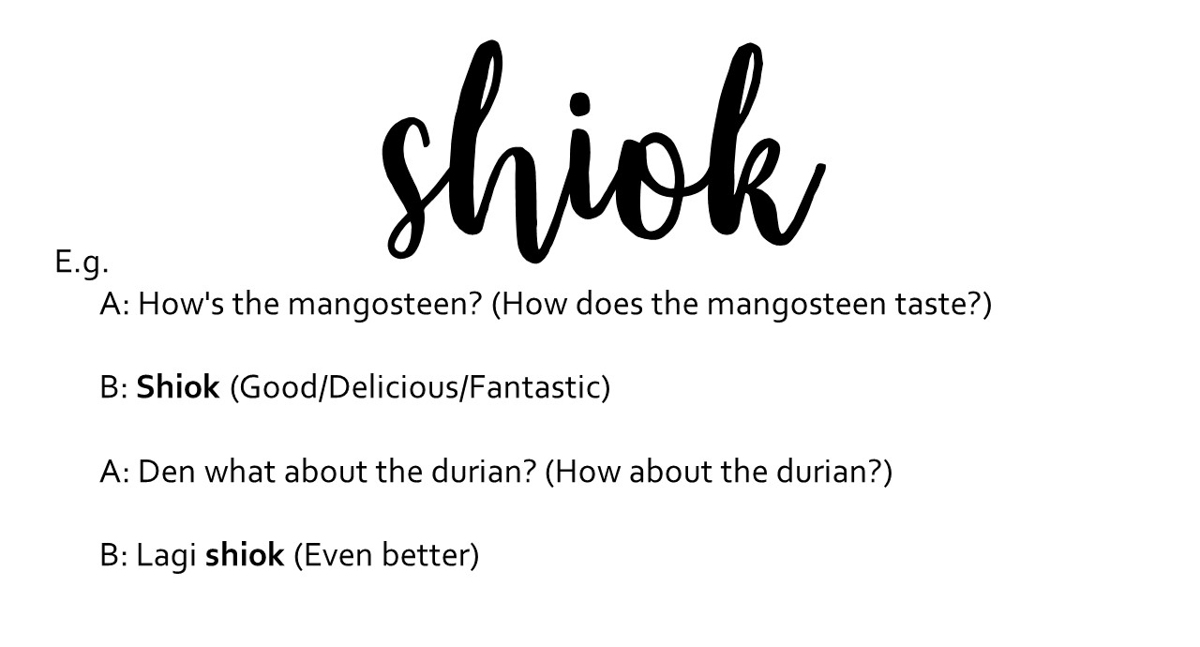
Not many Singaporeans know this, but “shiok” is actually a misspelling of the Malay slang word “syiok” for “asyik”, which conveys a sense of overwhelming euphoria.
“Shiok” is used to express a good feeling or extreme satisfaction. While mostly used to describe how delicious a food is, it also can be used in almost any and every scenario. A good meal can be shiok, the feeling of winning the lottery is shiok, and a cold shower on a hot day is also shiok.
8) ‘Scuse (skews)
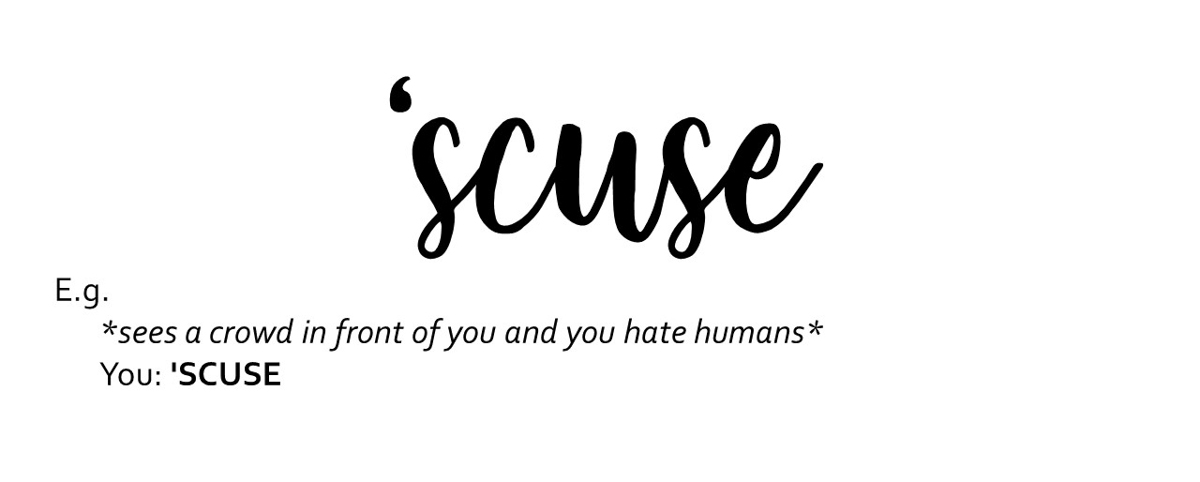
An efficient way of saying “excuse me” is shortening three syllables to one. Notice the omission of “me” that should follow after “excuse”. What can I say, Singaporeans are all about efficiency.
If one word gets the job done, subsequent words are obviously redundant. Also, ain’t nobody got time for a three-syllable term when you’re already in a rush. ‘Nuff said.
9) Makan (mah-kan)
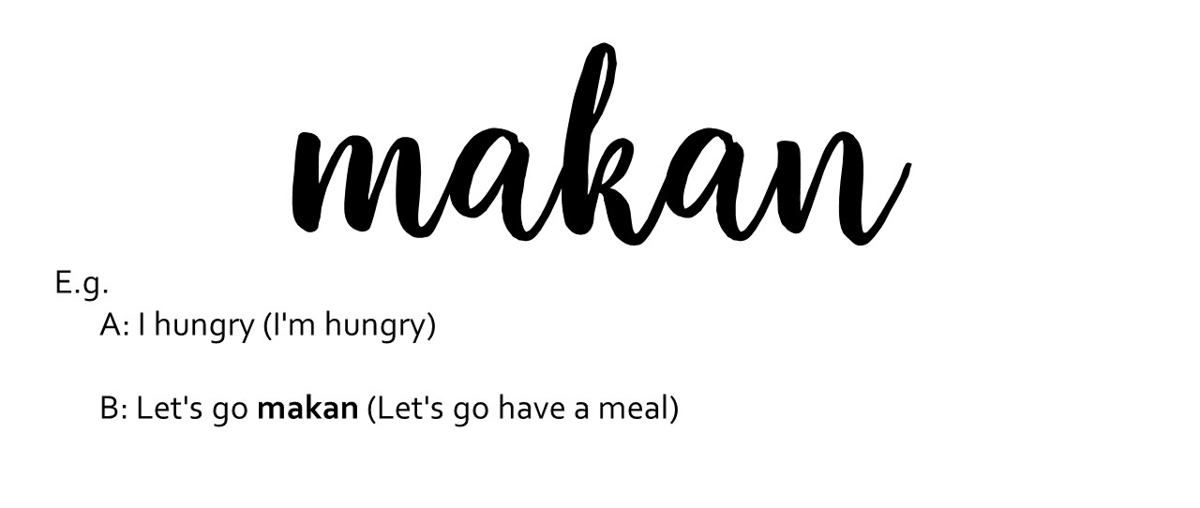
“Makan” means “to eat”, “food”, “a meal”, “to consume” in Malay. It’s also used by every Singaporean regardless of race because we’re a bunch of foodies and we’re proud of it.
Read also: Ultimate Singapore Food Guide for Tourists
10) Dabao (dah-bao)
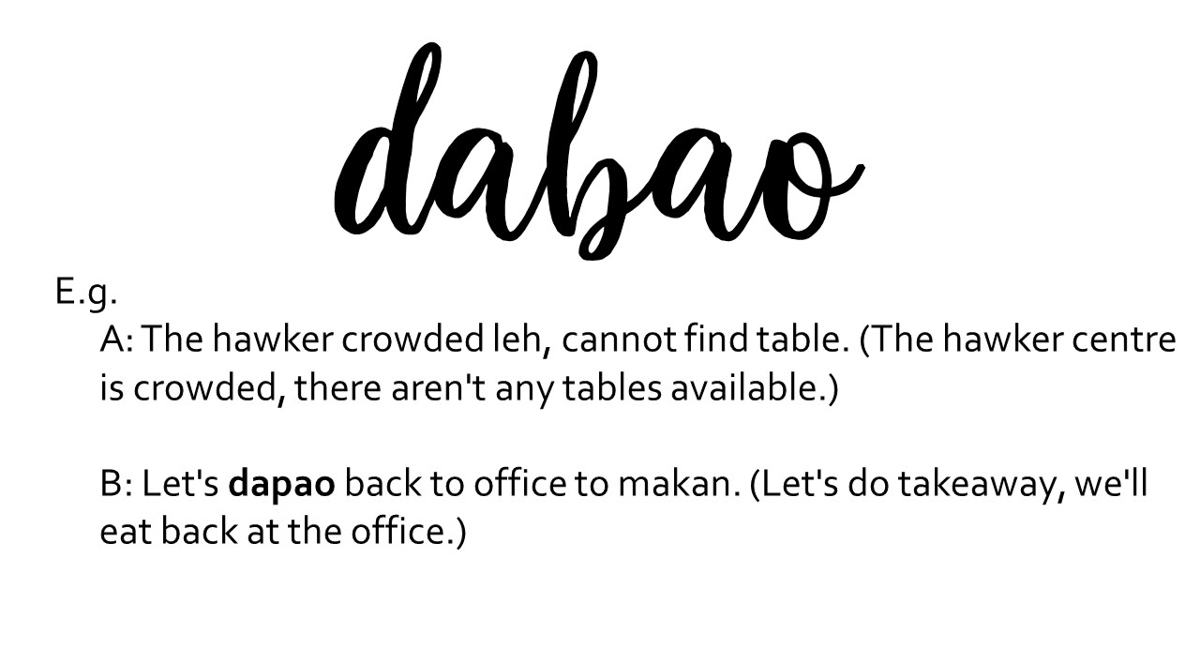
“Dabao”, also spelt “tabao”, means “to take away (food)”. A true blue Singaporean Mandarin term, “dabao” is a word not understood in other Mandarin-speaking countries like China or Taiwan.
Interestingly, “dabao” can also mean “to have passed away” in some parts of China so do only use this term in Singapore!
11) Kancheong (kan CHEE-ong)
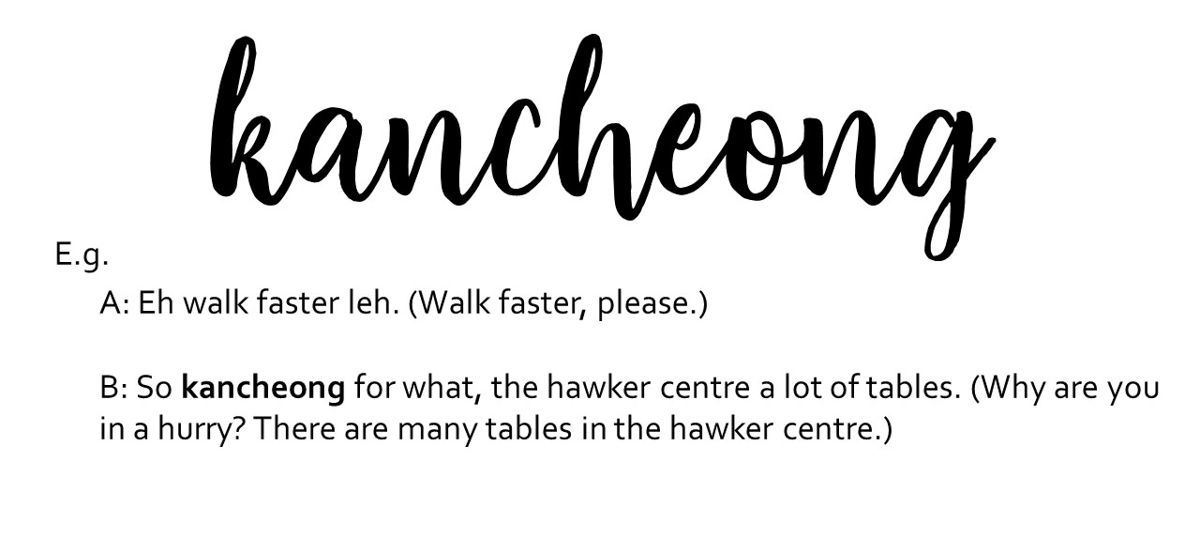
Similar to its original meaning in Cantonese, “kancheong” carries the senses of urgency, nervousness, anxiousness, and tension in one word. Another Singlish term “kancheong spider” is often used to refer to people who are always in a hurry or easily flustered.
Read also: 54 Iconic Things to Do in Singapore
A possible conversation using your newly-learnt Singlish terms
You: I’m hungry, makan time.
*at the hawker centre*
You: So crowded, better be kiasu and chope a table first.
*chopes table with tissue paper packet*
*sees a long queue at chicken rice stall*
You: The queue so long, the chicken rice must be shiok.
*person in front of you blocking your way*
You: ‘scuse
Person: Chill bro, why you so kancheong
*person walks away*
You: Auntie, one plate of roasted chicken rice, please
Auntie: Ah boy ah, no more roasted chicken, white chicken can?
You: Den give me white chicken, thanks.
*finds out table got taken by an uncle*
You: ‘scuse uncle, this one my table
Uncle: Ah boy ah, I sit here very long already now den you say this table your one. You want we can share table, if not, you dabao your food bring back eat.
You: Can, we share table.
Fine-tuning your Singlish
As with every other language in the world, memorising vocabulary does not make a proficient speaker! There’s so much more to learning and mastering Singlish, like getting the (“broken”) sentence structures right, nailing the singsong accent, and speaking it with the right attitude.
If you’re interested to learn more Singlish from us, keep your eyes peeled on this website as we’ll be rolling out more Singapore content!
What other interesting Singlish terms do you know of? Share them in the comments below!
For more travel inspiration, follow us on Facebook, Instagram, and YouTube.
View this post on Instagram


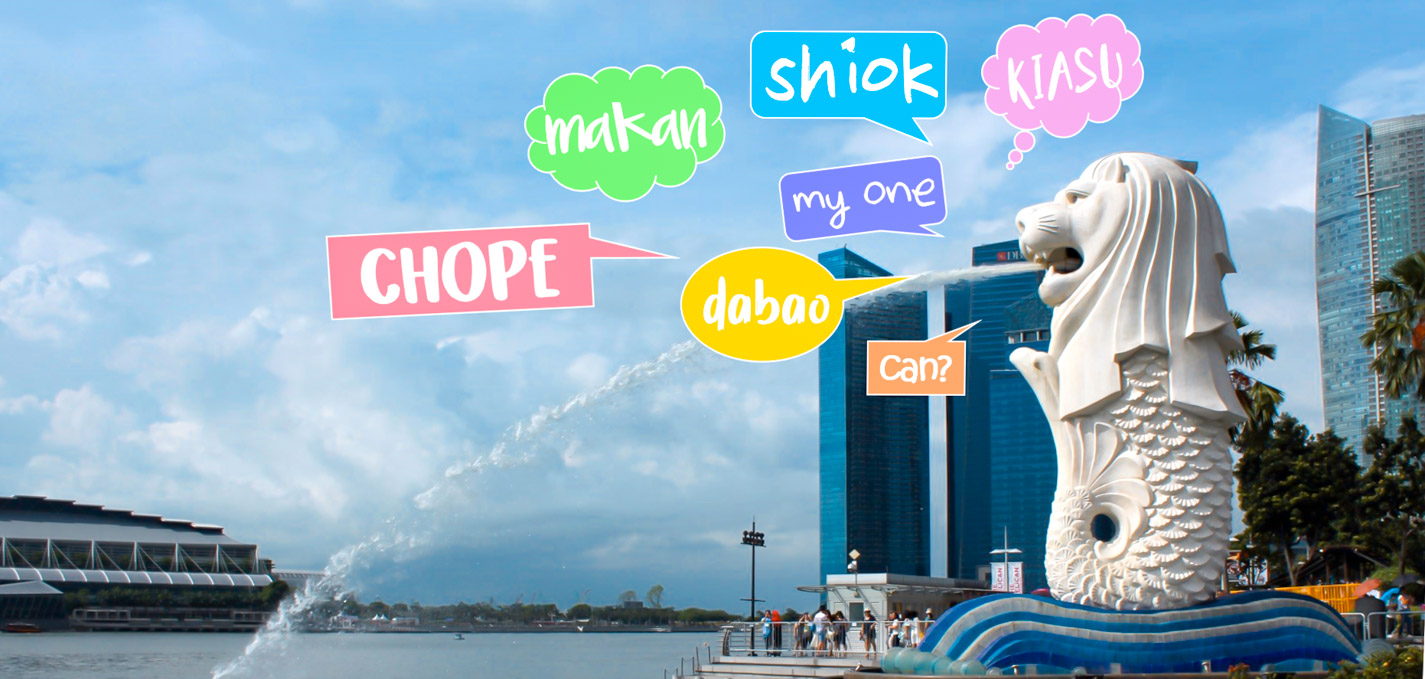












I learn to Singapore sinlish,so help me
We feel the best way to learn Singlish is to pick it up by speaking to local Singaporeans! 🙂